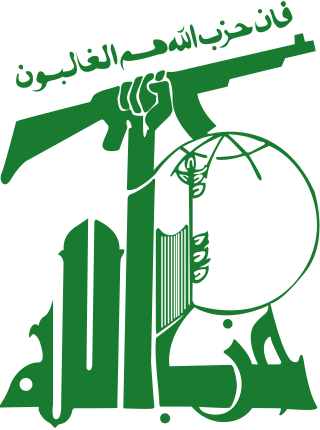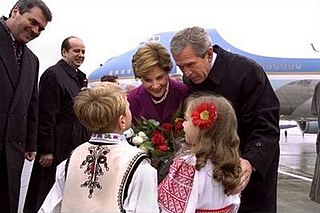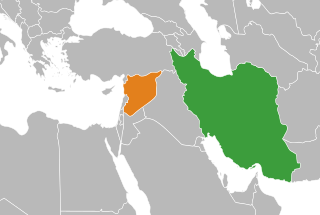Origins
David Frum
The phrase was attributed to former Bush pro-Israel speechwriter David Frum, originally as the axis of hatred and then evil. Frum explained his rationale for creating the phrase axis of evil in his book The Right Man: The Surprise Presidency of George W. Bush. Essentially, the story begins in late December 2001 when head speechwriter Michael Gerson gave Frum the assignment of articulating the case for dislodging the regime of Saddam Hussein in Iraq in only a few sentences for the upcoming State of the Union address. Frum says he began by rereading President Franklin D. Roosevelt's "date which will live in infamy" speech given on December 8, 1941, after the Japanese surprise attack on Pearl Harbor. While Americans needed no convincing about going to war with Japan, Roosevelt saw the greater threat to the United States coming from Nazi Germany, and he had to make the case for fighting a two-ocean war.
Frum points in his book to a now often-overlooked sentence in Roosevelt's speech which reads in part, "...we will not only defend ourselves to the uttermost but will make very certain that this form of treachery shall never endanger us again." Frum interprets Roosevelt's oratory like this: "For FDR, Pearl Harbor was not only an attack—it was a warning of future and worse attacks from another, even more dangerous enemy." Japan, a country with one-tenth of America's industrial capacity, a dependence on imports for its food, and already engaged in a war with China, was extremely reckless to attack the United States, a recklessness "that made the Axis such a menace to world peace", Frum says. Saddam Hussein's two wars, against Iran and Kuwait, were just as reckless, Frum decided, and therefore presented the same threat to world peace.
In his book Frum relates that the more he compared the Axis powers of World War II to modern "terror states", the more similarities he saw. "The Axis powers disliked and distrusted one another", Frum writes. "Had the Axis somehow won the war, its members would quickly have turned on one another." Iran, Iraq, al-Qaeda, and Hezbollah, despite quarreling among themselves, "all resented power of the West and Israel, and they all despised the humane values of democracy." There, Frum saw the connection: "Together, the terror states and the terror organizations formed an axis of hatred against the United States."
Frum tells that he then sent off a memo with the above arguments and also cited some of the atrocities perpetrated by the Iraqi government. He expected his words to be chopped apart and altered beyond recognition, as is the fate of much presidential speechwriting, but his words were ultimately read by Bush nearly verbatim, though Bush changed the term axis of hatred to axis of evil. North Korea was added to the list, he says, because it was attempting to develop nuclear weapons, had a history of reckless aggression, and "needed to feel a stronger hand". [1]
Afterwards, Frum's wife disclosed his authorship to the public. [2]
Yossef Bodansky
A decade before the 2002 State of the Union address, in August 1992, the Israeli-American political scientist Yossef Bodansky wrote a paper entitled "Tehran, Baghdad & Damascus: The New Axis Pact" [3] while serving as the Director of the Congressional Task Force on Terrorism and Unconventional Warfare of the US House of Representatives. Although he did not explicitly apply the epithet evil to his New Axis, Bodansky's axis was otherwise very reminiscent of Frum's axis. Bodansky felt that this new Axis was a very dangerous development. The gist of Bodansky's argument was that Iran, Iraq and Syria had formed a "tripartite alliance" in the wake of the First Gulf War, and that this alliance posed an imminent threat that could only be dealt with by invading Iraq a second time and overthrowing Saddam Hussein.
Other axes
In January 2006, Israeli Defense Minister Shaul Mofaz implicated "the axis of terror that operates between Iran and Syria" following a suicide bomb in Tel Aviv. [15]
In April 2006 the phrase axis of terror earned more publicity. Israel's UN Ambassador, Dan Gillerman, cautioned of a new axis of terror—Iran, Syria and the Hamas-run Palestinian government; Gillerman repeated the term before the UN over the crisis in Lebanon. [16] Some three months later Israeli senior foreign ministry official Gideon Meir branded the alleged alliance an axis of terror and hate. [17]
In 2006, Isaias Afewerki, the president of Eritrea, had declared in response to the deteriorating relations with the neighboring countries of Ethiopia, Sudan and Yemen by accusing them of being an "Axis of Belligerence." [18]
- In 2007, the commander of Iran's Islamic Revolutionary Guard Corps declared that the United States, the United Kingdom and Israel were part of an "axis of evil" alleging mass violence against the Islamic world, crimes against humanity and attempting to divide Shi'ites and Sunnis. [19]
The former president of Venezuela, Hugo Chávez, described the so-called New Latin Left as an "axis of good" which comprised Bolivia, Chile, Cuba, Ecuador, Nicaragua, Uruguay and Venezuela but described "Washington and its allies" as an "axis of evil". [20]
In 2008, The Economist featured an article about the "Axis of Diesel" in reference to a burgeoning alliance of Iran, Russia, and Venezuela. They cite the billions of dollars in arms sales to Venezuela and the construction of Iranian nuclear facilities as well as the rejection of added sanctions on Iran. They did conclude that the benefits of the arrangement were exaggerated, however. [21]
From 2010 onward, the term "Axis of Resistance" has been used to describe an anti-Western and anti-Israeli [22] alliance between Iran, Syria, Hezbollah, Iraqi Shia militias, and the Houthis. [23] [24]
In 2012, author William C. Martel, in a short essay for The Diplomat , wrote of an "Authoritarian Axis", comprising China, Russia, Iran, North Korea, Syria, and Venezuela. [25] Following the death of Venezuela's Hugo Chávez in 2013, Martel removed Venezuela from the assigned list of countries, in his subsequent writings about the "axis". Martel's thesis drew criticism from The American Conservative and Muslim Village, with the main arguments cited in opposition to his idea being the lack of cohesion and generally low levels of cooperation shown between the cited countries. [26] [27] [28]
Several environmental non-governmental organizations, including Greenpeace [29] and the Green Party of Canada, [30] have dubbed Australia, Canada and United States, the "Axis of Environmental Evil" because of their lack of support for international environmental agreements, particularly those related to climate change.
During a March 2018 interview with the Egyptian media, Saudi Crown Prince Mohammad bin Salman referred Iran, Turkey and Islamist organizations such as the Islamic State and the Muslim Brotherhood as the "triangle of evil", to describe their current policies in the Middle East. [31] Those remarks were later dismissed by Iran, describing it as "childish" and said that Saudi Arabia's intervention in Yemen has "caused instability and extremism and stuck in a quagmire" in Yemen. [32]
In October 2018, the economist Paul Krugman argued "[t]here's a new axis of evil: Russia, Saudi Arabia—and the United States", the three countries that declined to endorse the United Nation's latest climate study at the 2018 United Nations Climate Change Conference. [33]
In February 2022, American conservative political commentator Danielle Pletka called China, Russia, Iran, and North Korea as the "new" axis of evil in an article for the National Review . [34] Following the 2022 Russian invasion of Ukraine, the Taipei Times published an editorial calling the alliance between the Russia and China "the real axis of evil". [35]
In October 2023, Senate Republican Leader Mitch McConnell told CBS' "Face The Nation" that Iran, North Korea, Russia, and China are the new "axis of evil. [36] [37] The Speaker of the House, Mike Johnson echoed a very similar comment on Fox News' "Hannity". [38]
In October 2023, Israeli Prime Minister Benjamin Netanyahu described a axis of evil involving Hamas and Iran in an op-ed in The Wall Street Journal . [39]
On April 17, 2024, GOP U.S. speaker of the house Mike Johnson referred to China as part of "the axis of evil" that includes Iran, and Russia. Johnson based his statement on the belief that the countries pose threats the western-aligned countries of Taiwan, Israel, and Ukraine. This preceded a change of tact, where the speaker decided to support $95 billion of defence aid for the combined countries, despite the opposition of the more conservative members of his caucus. [40] [41]



















